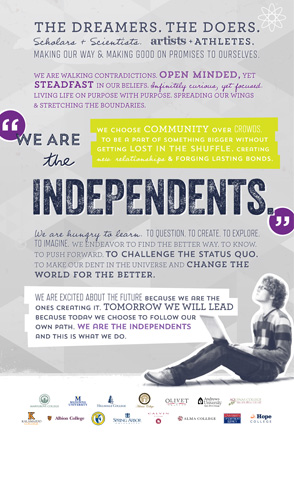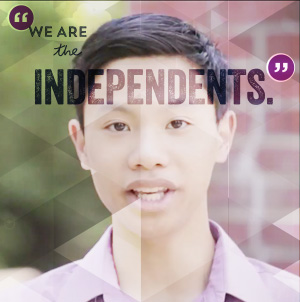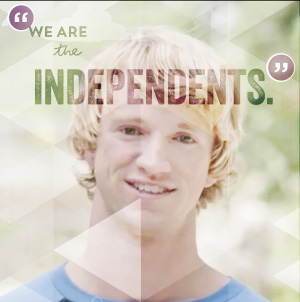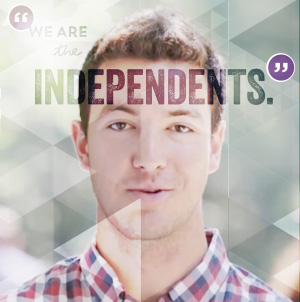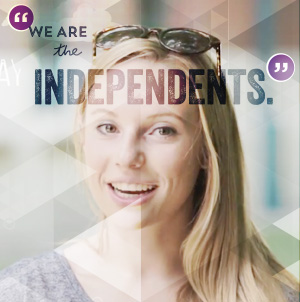Archive for August 2019
Private Colleges Team Up with Harvard Business School Online to Create Unique Hybrid Learning Program
Michigan Colleges Alliance (MCA) is collaborating with Harvard Business School (HBS) Online to offer students at participating MCA campuses a blended learning program, and an opportunity to earn an HBS Online course credential. In the first phase, nearly 70 students from five MCA member colleges and universities completed the HBS Online’s Sustainable Business Strategy course in the spring.
“When we built this course, one of my hopes was that it could be utilized to educate young people about the important role that business has in tackling some of the challenging issues of our time,” said Harvard Business School Professor Rebecca Henderson . “The students and faculty from the MCA campuses who participated in this pilot are pioneers, and I look forward to seeing how they will apply the learnings from our course in their own communities.”
The participating colleges created a blended learning offering where students registered for the “sustainable business” course led by local faculty and featuring the HBS Online course led by Professor Henderson. Students then applied their learnings through projects with businesses that were facing sustainability challenges, including Wolverine Worldwide, Merrill, Adrian Steel and Thetford Corporation.
“This was by far the most interactive course I have ever taken,” said Mya Oleksiak , a sophomore at Adrian College . “I loved that the modules and field work put me in real-life situations, and the meetings with my professor and classmates tied it all together. It was a privilege to be part of it.”
“This was a huge opportunity to reinforce what I learned as a Sustainable Business major and to take it into the real world,” said Tyson Marsh , a senior at Aquinas College . “The conversations with people in my group, from Bangladesh and Australia , helped me see different ways to apply and approach sustainability, and it is really amazing to be able to help a big global company like Wolverine solve a real sustainability problem.”
“The HBS pilot is a perfect illustration of why MCA has become a national leader in private higher education collaboration,” said MCA President Robert Bartlett . “It embedded content from the most prominent business education brand and a global learning network into existing classes offered by our member campuses. It then connected student classroom experiences to real projects in local communities. This best practice, active pedagogy model has produced tangible outcomes for both students and local businesses throughout the state.”
MCA plans to extend the program with another Sustainable Business Strategy offering in the spring and other HBS Online courses in the future. MCA represents 14 of the top independent colleges and universities in Michigan. Participating colleges included Adrian College, Albion College, Andrews University, Aquinas College, and Spring Arbor University.
Detroit Mercy Civil Engineering student one of eight in U.S. invited to Washington, D.C., legislative fly-in
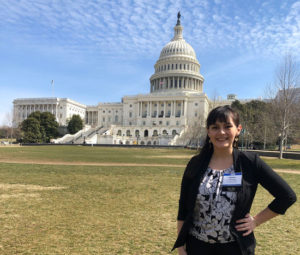 Emma Hagel is passionate about the public policy concepts involved in civil engineering. University of Detroit Mercy’s educational environment — from encouraging professors to an array of professional opportunities — helped that passion blossom into a life-changing experience.
Emma Hagel is passionate about the public policy concepts involved in civil engineering. University of Detroit Mercy’s educational environment — from encouraging professors to an array of professional opportunities — helped that passion blossom into a life-changing experience.
Hagel, a senior studying civil engineering at Detroit Mercy, recently participated in a legislative fly-in for the American Society of Civil Engineers (ASCE). This annual public policy program in Washington, D.C., — called a “fly-in” for the primary method of transportation to attend the event — provided Hagel an opportunity to combine public policy and civil engineering, network with professional engineers and engage elected officials on infrastructure issues.
But the overall experience proved to be much more — she says it has opened a new professional door.
Rather than work in engineering as planned, she has decided to pursue a legislative career and hopes to further her education through public policy master’s programs.
“I believe that Detroit Mercy encourages students to pursue interests outside of their field to create well-rounded professionals,” said Hagel, whose English literature and philosophy minors embody just that. “Because of the learning environment at Detroit Mercy, I felt comfortable and encouraged to look into the policy side of engineering and to pursue this opportunity.”
Representing Detroit Mercy in the nation’s capital, Hagel was just one of eight students throughout the country selected to participate in the fly-in and the lone student in Michigan’s five-person delegation. She interacted with an array of people, from engineers who share similar passions to politicians, including her congressman, U.S. Rep. Andy Levin (D-Bloomfield Township).
The purpose of this year’s fly-in, Hagel said, was to lobby elected officials “to act on our nation’s infrastructure funding crisis.”
“We advocated for an increase in the federal gas tax and the approval of infrastructure-related, fiscal year 2019 appropriations,” she said.
During the first day of the event, attending delegations underwent lobbying training sessions and learned about ASCE’s stance on infrastructural issues. By the second day, state delegations were prepared to make congressional visits and present information to legislators and their staff.
Hagel has taken full advantage of Detroit Mercy’s extracurricular offerings, which led to her participation in the event. She finds herself ingrained in student life, holding leadership roles in three organizations—president of the Society of Women Engineers, vice president of ASCE — both Detroit Mercy chapters — and captain of ASCE’s concrete canoe team.
Hagel discovered the event through ASCE government relations emails and was urged to apply by James Lynch and Utpal Dutta, professors of Civil, Architectural and Environmental Engineering at Detroit Mercy.
“The unique environment they have created for civil engineering students at Detroit Mercy has helped me succeed academically and professionally,” Hagel said.
ASCE offers a limited amount of travel grants to help offset costs for fly-in participants. Hagel received one of those grants; the civil engineering department helped cover the rest of the costs.
Hagel’s experience with the event goes well beyond her two days in Washington — it has changed her perspective on civil engineering and paved the way to a boundless future.
“While one can design and implement infrastructure while working in the private or public sector, all projects rely on government funding,” she said. “The way one can create the biggest impact on our nation’s infrastructure is by implementing policy that adequately funds the repair, replacement and creation of it.”
To learn more about Detroit Mercy’s College of Engineering & Science, please visit https://eng-sci.udmercy.edu/index.php.








